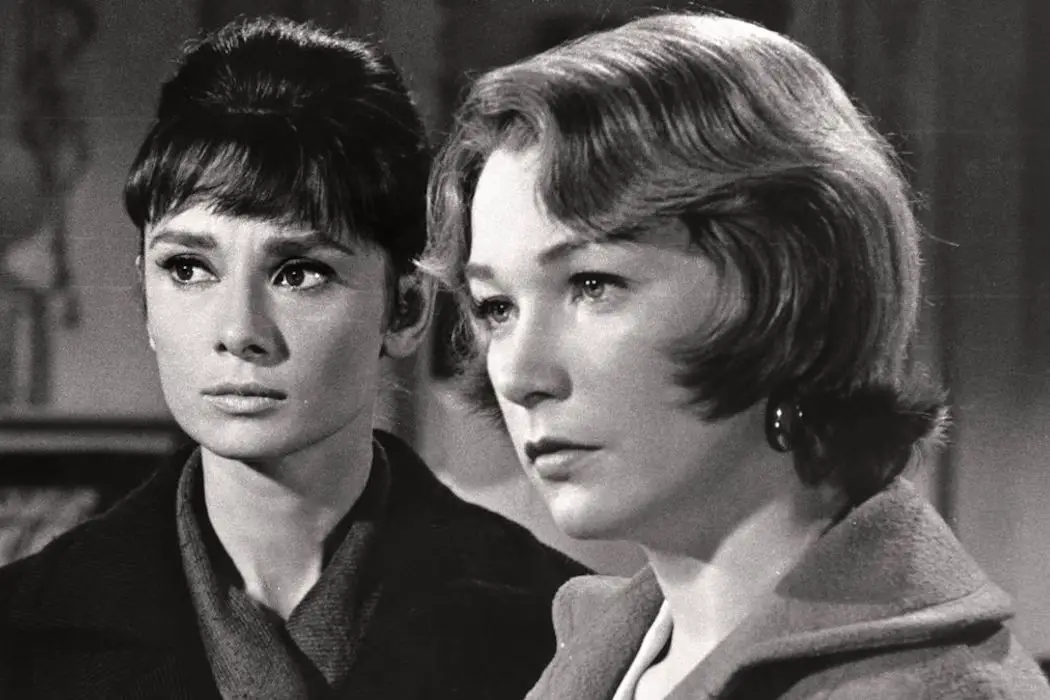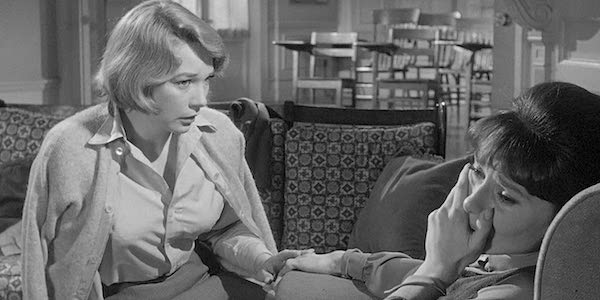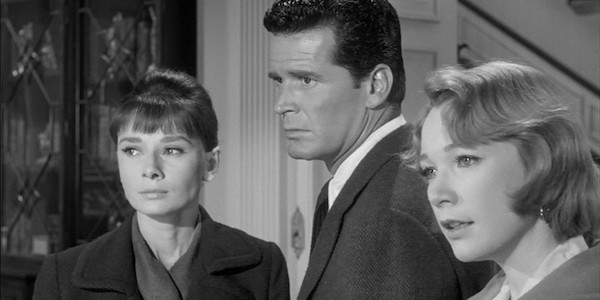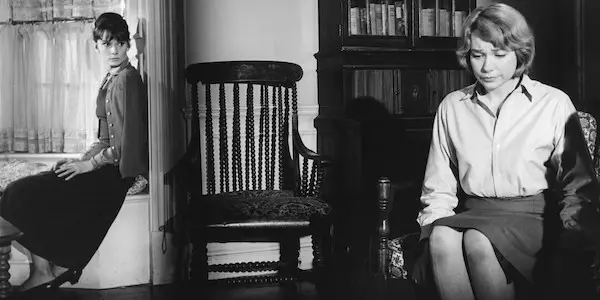THE CHILDREN’S HOUR: 60 Years of Progress

Lover of all things cinema, Hayden Welch is a Chicago-based…
From Stonewall to the Harvey Milk assassination to the same-sex marriage supreme court decision, miles have been tread since the release of William Wyler’s highly important and bold picture, The Children’s Hour. Sixty years on, let’s look back at how we achieved a greater amount of tolerance, and how to best progress.

When the masterful play of the same title was first published in 1934, homosexuality was so taboo that even a mention of the act was illegal. The State of New York gave The Children’s Hour the permission to continue its run due to the immense and overwhelming amount of love and support this gained critically. This bold and accepting play brought the discussion of LGBTQ+ rights to the forefront in a time where even uttering the phrase “homosexuality” was legally reprehensible. The Children’s Hour dared to make audiences uncomfortable and present the consequences of bigotry.
Making Small Strides
While many films that champion LGBTQ+ rights became mainstream throughout the late sixties and early seventies, The Children’s Hour is a unique case in many regards as it was not only one of the pioneering films – from a renowned and already well-established filmmaker with a great deal to lose – but one of the first within the mainstream to take a dark yet empathetic approach to just a subject. While what happens within the webbed and tumbling events of The Children’s Hour is anything but pleasant, William Wyler took an approach so prophetic that it comes across as a warning filled with a pleading sympathy.

It’s fascinating to view The Children’s Hour as the multi-layered trendsetting piece that we view it as today as the people behind this masterful film were not aware that they were making history. That being said, even the director has been quoted as saying he never had the intention of making it a gay-oriented drama and he was even pressured into cutting many of the more intimate scenes between the two critical darlings. Shirley MacLaine once said, “The profundity of this subject was not in the lexicon of our rehearsal period. Audrey and I never talked about this. Isn’t that amazing? Truly amazing.” It’s so interesting to be of that perspective, one wherein so much could have been executed with the grace of a freight train, causing harm to a disenfranchised community. Luckily, that’s not what we were served with, yet that parallel universe is far closer to ours than some would admit.
Controversy Within Community
What’s perhaps the most fascinating and unique feature of William Wyler’s bold drama is its reception. For those unaware, this piece deals with internalized homophobia and how society treated this marginalized group. This is not the typical route for a film about the LGBT+ community; typically the filmmaker deals explicitly with trauma or the day-to-day life of any specific sub-category of the community. That being addressed, I think it’s extremely interesting that this dramatic work of art has not been wholeheartedly embraced by the community it depicts. Writer Tyler Coates of Decider once said, “As interesting and well-written The Children’s Hour is, it misses a major mark. It’s not really a queer movie at all, because no one involved in the film made an effort to understand the queer experience.” While I disagree that it did “no effort” to understand the experience of a community I am a part of, I do agree with the sentiment that it was a stepping stone and not a finality.

While there have been films, books, and experiences that have progressed the movement in a more meaningful and productive way, I find the transitionary steps of societal integration to be much more compelling to study. Of course, anyone can agree that full-stop acceptance and progress is a wonderful thing – that’s why The Children’s Hour is such an enigma. It has this tonal air of love and empathy, yet it doesn’t quite do everything to could to fully implement normalcy of the movement into modern-day society.
Conclusion
I almost find it more important to try and understand the pieces that made us able to produce films that are more outwardly accepting and inclusive, and while The Children’s Hour is far from as politically correct and realistically depicted as it could be it’s certainly making strides to normalize the inclusion of these disenfranchised people, and finding ways to address these issues is commendable, even if there was, and still is, a long way to go.
Do you think The Children’s Hour is still a potent work today? Let us know in the comments below!
The Children’s Hour is currently available to stream on Amazon Prime.
Watch The Children’s Hour
Does content like this matter to you?
Become a Member and support film journalism. Unlock access to all of Film Inquiry`s great articles. Join a community of like-minded readers who are passionate about cinema - get access to our private members Network, give back to independent filmmakers, and more.
Lover of all things cinema, Hayden Welch is a Chicago-based film student and writer at DePaul University. He is a Rotten Tomatoes-approved critic who appreciates Twin Peaks, Bob Dylan, and all things outlandish.













